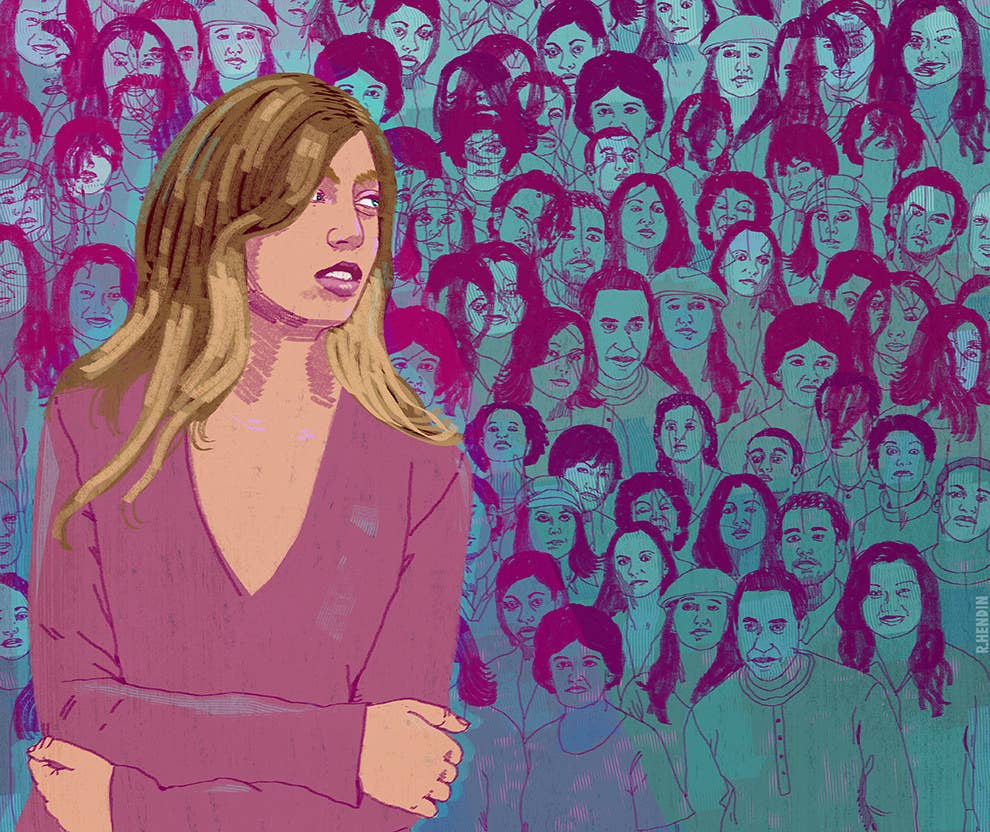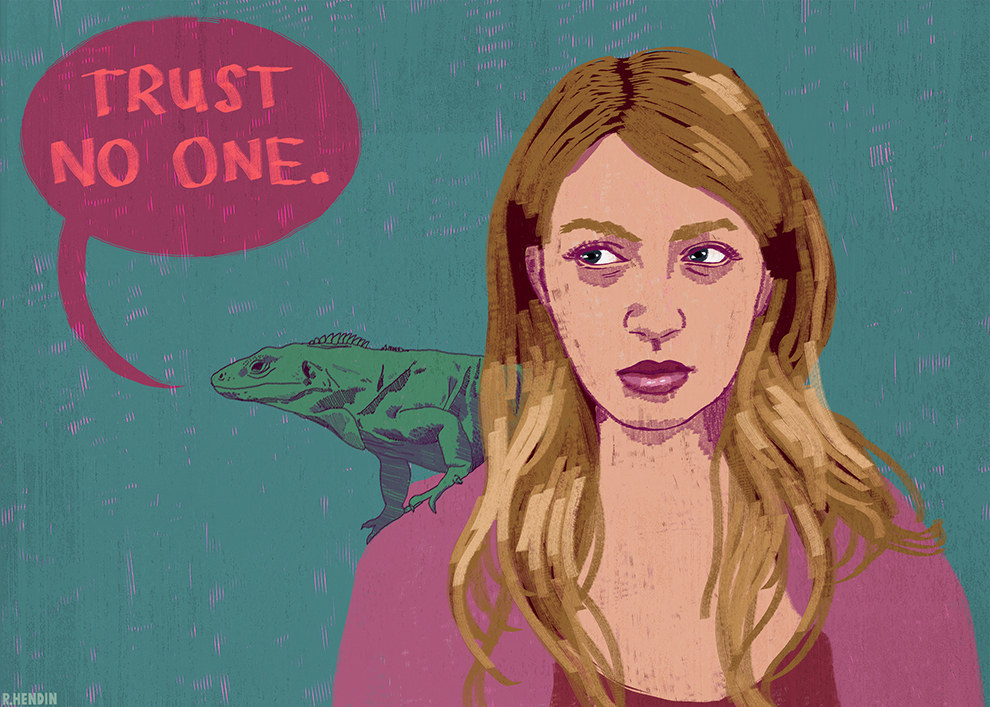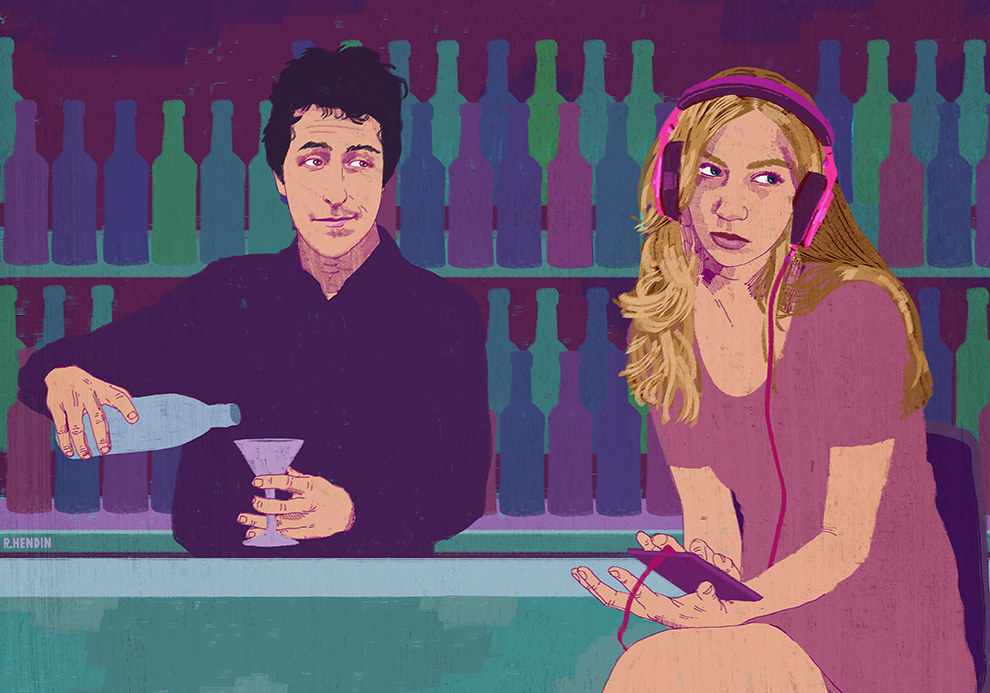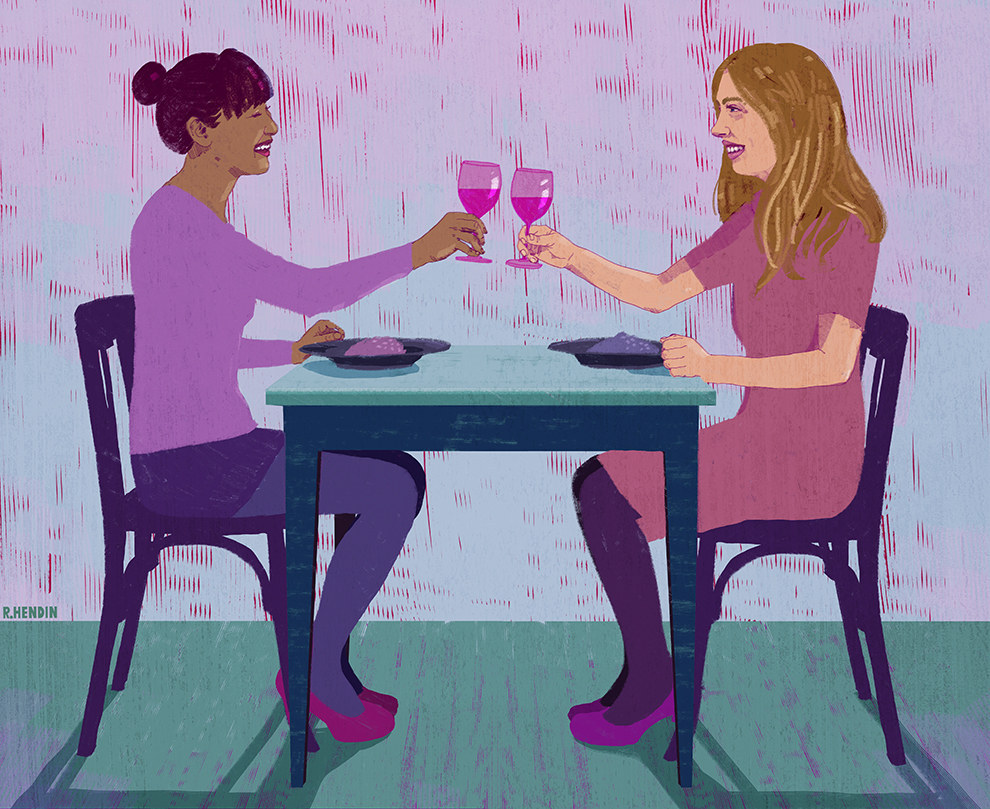
Like most people, I want to be liked.
Unfortunately, most of my social interactions are tainted with the feeling that people don't like me very much.
This could be down to a number of things. Maybe it's that I spend more time playing a game on my phone attracting cats to an online backyard than I do honing any social skills. Maybe it's my habit of sneezing loudly at least two times a day, if not more. Or maybe it's just plain old-fashioned social anxiety. Which is why I tend to avoid talking to people like the plague. Because people can't hate you if they never speak to you.
Don't get me wrong, I have friends. And all three of them are great. But always feeling like you're socially incompetent can get a bit draining. So I decided to do something about it. And by doing something, I mean getting someone else to teach me how to win friends and influence people.
Turns out, charisma can be taught.
Richard Reid is a TV psychologist who holds charisma masterclasses in the UK. I organised an interview to learn his charismatic secrets. Brace yourself, Richard: The Luke to your Yoda has arrived.
First things first, what actually causes social anxiety? Reid puts it down to the "reptilian brain", i.e. the oldest part of the brain, which is primarily concerned with keeping you alive. It constantly scans the situations you're in for danger and is predisposed to thinking negatively, so you're more likely to be aware of possible threats. But this means that when we go into social situations, we "interpret them based on past experiences, looking for evidence that the bad things that have happened before will happen again, and this undermines us," Reid said.

There are loads of tricks to help counter this, but Reid told me there are three main techniques everyone should start with.
1. Get into the right mindset.
Think about something that makes you feel very relaxed, perhaps a specific day on holiday. Close your eyes and imagine you're back in that situation. Then, bring your thumb and forefinger of your right hand together to form a circle.
The point of this is to change your mindset to help relax your body language. When we start to negatively anticipate a social situation, our micro-muscles tense up. People instinctively notice this, and it affects how they react to us.
"The idea is to create a Pavlov's Dog effect," Reid said. "The more you practise this, the more your brain will start to associate that activity with the feeling, to the point where you won't need to consciously recall the memory to get the effect."
2. Adapt your body language.
Bring your shoulders back and keep your arms uncrossed, or lean forwards to rest your elbows on your knees. Don't let your eyes wander or your feet tap while you talk.
According to Reid, body language is a really important part of charisma, as "roughly 87% of how we interpret people is through indirect body language".
Opening up the body, waving, and shaking hands are all ways to put someone at ease, because they're signs of safety (i.e. "look, I'm not carrying a weapon"). We think of charisma as being about charm, but "it's actually about feeling safe with someone", Reid said.
For instance, when we're nervous, we either over-accentuate our body language or we make ourselves smaller, Reid said. But they're both defensive movements, so even if the other person doesn't notice it consciously, their reptilian brain will pick up on it as a warning sign, and they'll be less relaxed, and more likely to feel like they didn't "click" with you.
3. Listen.
Don't try to hijack the other person's conversation. Give them lots of time and space to talk, and use open-ended questions. Who, what, when, where, and how questions are all good.
Body language when you're talking is important, but most people tend to fall down with the flip side: listening.
When we're nervous and feeling a pressure to entertain, our brain gets "flooded with stress hormones", making us less able to think of things to say, Reid said. But when we put the focus on the other person by listening, this helps us to relax and understand them more.
Conversations shouldn't be used as a vessel to give pre–thought-out stories about yourself, but as an opportunity to learn as much as you can about the other person.
So, I had three techniques and seven days to get to grips with them.
Would friends and adulation be mine? Or would I just become that weird girl who keeps making a circle with her fingers?

Day One
Fresh from the masterclass with Reid, I was raring to go. I decided to test my new skills at the BuzzFeed "Galentine's Day" party on Friday, i.e. drinks with the women in the office. Being in large groups that contain people I don't know well is my worst nightmare (no, really, I've had nightmares about it), but hey, in at the deep end, right?
As usual, when I sat down I felt that familiar anxious tension creep up over me. Then I tried the finger circle trick, and that helped, in that it gave me something to focus on other than how I wasn't speaking to anyone.
At one point I did find myself in a conversation, and I tried out a few open-ended questions, which did work! There weren't as many abrupt awkward pauses, and it turned out the person I was talking to was really quite interesting. I left feeling like I hadn't totally embarrassed myself, and I count that as a victory.
Charisma score: 6/10
Day Two
Sometimes I work on Saturdays, and this was one of them. I like rooms that have little to no people in them, and that is why I fucking love working Saturdays in an empty office. This is also why I sometimes go and hide in toilet cubicles.
Afterwards, I went to my boyfriend Karl's house and sat alone in his room watching a Korean show about celebrity dads looking after their kids. Never let it be said that I don't know how to spend a Saturday night.
Then Karl's housemate, Patch, came home. He's friendly and nice (and very kindly ignores how I once hid from him behind a fridge), so asked me if I wanted to watch something with him. I made a circle with my fingers and came out into the living room. It went well until I got comfortable and started talking about beauty routines, at which point he said (I think jokingly?) that I was quite patronising about skincare. Which just goes to show: Never trust anyone.
I don't care what you say, Patch, I've been reading Caroline Hirons for years and you NEED TO WASH YOUR FACE WITH WATER.
Charisma score: 3/10. Let down by my intense feelings about cleansing.

Day Three
This was Valentine's Day, which I am in a love-hate relationship with. It's consumerist bullshit, but if I don't get a card there will be hell to pay. I got invited on a canal trip with a seafood lunch, so Karl and I went on that, and it was both delicious and ridiculous. A man kept getting up and reading poetry aloud. A reading of "The Owl and the Pussycat" isn't something you know you need until it actually happens.
Tbh, I didn't need any techniques. I spent all day with one of the few people I actually feel comfortable around. We went home and ate takeout and played card games and I didn't once have to remind myself to uncross my arms.
Charisma score: 9/10.
Day Four
After work, I went to the bar Karl works at (he's an actor – of course he has a bar job) to wait for him to finish so we could go back to his place together. I sat at the bar with my headphones in and stared at my phone screen the entire time so no one would speak to me.
Afterwards, Karl mocked me because apparently I looked "ridiculous".
I regret nothing.
Charisma score: 5/10. You can't be uncharismatic if you have no contact with anyone.

Day Five
This was the day that I went for afternoon tea at The Ritz. Full disclaimer: My friend Ellie found a discount for it online, and that is the only reason we went. I am not that fancy.
Again, I'm comfortable around Ellie, so I didn't really have to use any techniques here – but I did realise about midway through just how much I was talking about myself. No matter how much you love the other person, it's easy to forget there's more to life than your own problems and stop listening to them.
Clearly something worked though, because at the end of the evening the waiter surreptitiously gave us each a box of tea for free, as well as some Ritz pens. The only logical explanation for this is my newfound charisma, so I am taking that as a win.
Charisma score: 7/10.
Day Six
Things took a downward turn post-lunch when I read a *less-than-glowing* comment on an article I'd written. As an online writer, you do get used to negative comments, but every so often one manages to slip under your skin. Sadly, it's less easy to use social anxiety-fighting techniques on an internet commenter.
I no longer felt in any way good about myself, and the idea of socialising with people made me want to tear my own skin off. So I cancelled my plans, went home, and ate peanut butter with a spoon while watching Korean babies.
Charisma score: 0/10
Day Seven
About midway through wallowing the night before – around the time my spoon hit the bottom of the peanut butter jar – I came to the conclusion that I'd been lax in my attempts to be more charismatic. The only time I'd actually been out of my comfort zone was Friday.
So I messaged someone I don't know that well to see if they'd be up for lunch today. Horrifyingly, they said yes. Suddenly I had lunch plans with someone I think is lovely, but also don't know well enough not to have a minor panic attack at the thought of being alone with.
We had lunch. We talked. I actively tried to use open-ended questions and keep the conversation focused on her. And I felt twinges of anxiety here and there, but for the most part I was OK.
When we left, she said it was lovely and we should do it again.
I think... I think I made a friend?
Charisma score: 7/10

Final Thoughts
Before I started, Reid warned me that these techniques take a lot of practice and I wouldn't get magical instant effects. The main thing was to just try to become more aware of my body and how I acted.
This was true – altering your body language and listening seem like small things, but when you're in a social setting, they're 100x more difficult. Coming up with open questions that didn't make me sound like a wannabe Dr Phil was really fucking hard, and sitting with my legs and arms uncrossed felt forced.
The major lesson I learned from this, however, was about listening. It sounds ridiculously simple, but properly listening to someone isn't a thing a lot of people do. Myself included. This was the one thing that had the most noticeable impact, and that helped me feel less stressed out. I don't know if I'll keep making circles with my fingers, but I am going to keep trying to listen more.
Maybe it won't make my anxiety go away. But at the very least I might be a marginally better person for it.
